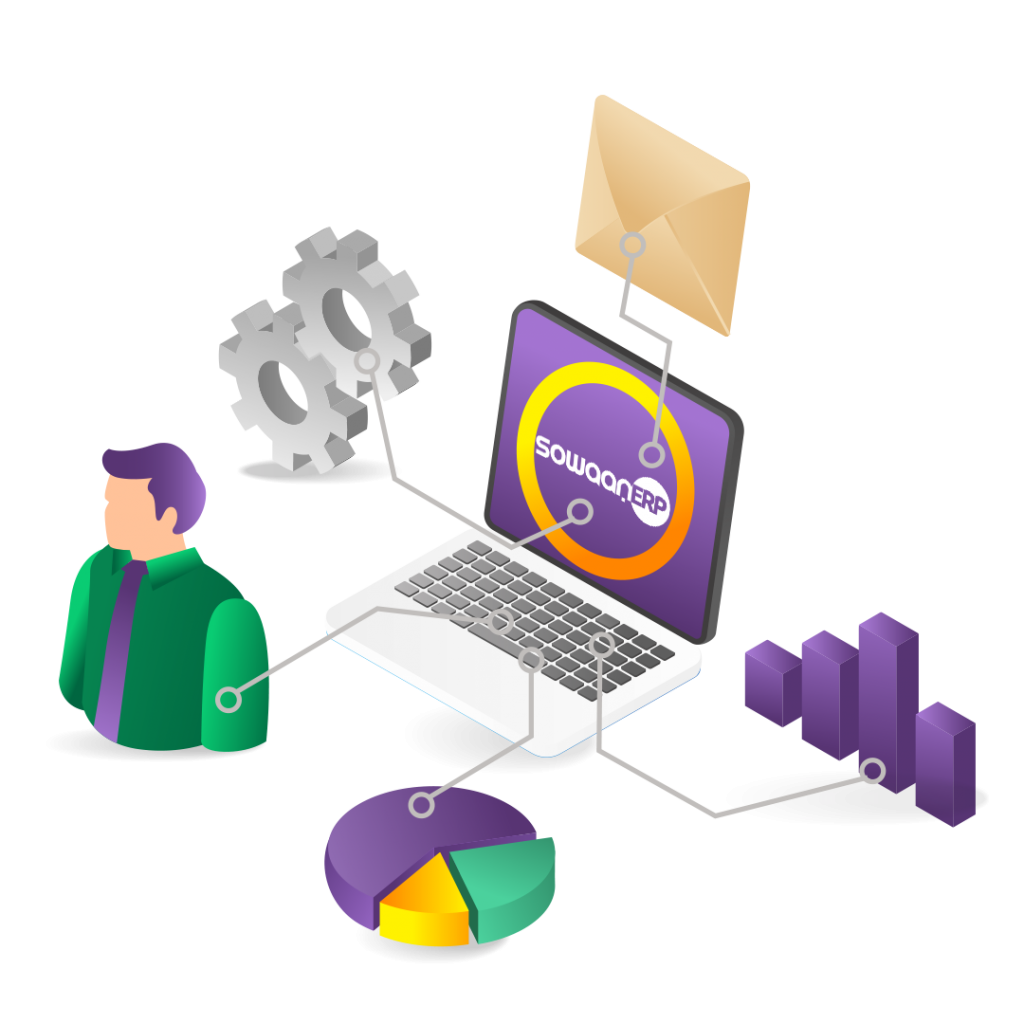An on-premises ERP system is a software solution using company hosts. It runs within the physical infrastructure and servers of the company located on the premises. This contrasts with cloud-based ERP systems that third-party service providers on remote servers accessible via the Internet manage.
Cloud-based ERP systemCloud-based ERP systems are hosted on remote servers and accessed through the Internet. They do not use local computers or servers of a company’s premises. Cloud-based ERP systems offer several advantages.
ERP systems offer various modules to streamline and manage specific business processes.
Accounts:
This module manages financial transactions, including accounting, general ledger, accounts payable/receivable, and financial reporting.
Stock:
It tracks inventory levels by managing warehouses, controlling stock movements, and monitoring inventory levels.
Customer Relationship Management (CRM):
The CRM module manages contact information and tracks customer interactions while supporting marketing efforts.
Selling:
This module includes the sales process, including quotation, sales order creation, delivery, and invoicing.
Buying:
The buying module manages purchase requests, procurement processes, and orders to supplier management.
Human Resources:
This module incorporates employee data, performance evaluations, payroll, recruitment, and Training.
Project:
This module is used for planning, resourcing, and tracking the progress of projects.
Support:
The Support module manages customer service operations to resolve issues.
Asset:
The asset module tracks all the physical assets of the organization.
Quality:
This module offers quality control and compliance to meet the required standards. Industry-specific modules
Manufacturing:
The manufacturing module manages production planning, scheduling, shop floor control, and quality assurance.
Education:
The education module handles student data, administrative tasks, academic resources, course scheduling, grading, and all administrative tasks.
Healthcare:
The healthcare module manages patient records, appointment scheduling, billing, compliance, and regulatory compliance.
Non-profit:
This module is designed specifically for non-profit organizations to help in donor management, fundraising, volunteer coordination, and grant management.
Agriculture:
The agriculture module caters to agricultural needs with crop management, livestock management, and farm equipment maintenance.
Retail and Distribution:
The retail and Distribution module manages inventory operations in the retail industry, including sales, customer service, and supply chain operations.
ERP systems offer many benefits to businesses.
- The real-time information provides improved visibility into various business operations.
- ERP systems promote teamwork with data sharing and enhance interdepartmental cooperation.
- The operational costs are reduced with the streamlining of business processes.
- Increased efficiency: A typical user experience across all business processes leads to improved efficiency.
- ERP systems provide a uniform look with an intuitive user interface.
- Better financial control and erp security and compliance in PK help mitigate business risks.
- A unified user experience allows easy adoption of the system.
- The uniformity of the ERP systems reduces costs associated with management and operations.

Needs Assessment: Firstly, it is essential to identify and assess your organization’s specific needs and requirements.
Goal Setting: Defining clear goals and objectives for erp system integration in PK. Outline the aims for its deployment.
Budgeting: Budgeting is an essential aspect of the system. Determine a realistic budget that includes licensing costs, implementation, Training, and ongoing maintenance.
Selection of ERP System: The next crucial step is the selection of the ERP system.
Research and Evaluation: Analyze the available ERP solutions based on functionality, scalability, industry compatibility, and vendor reliability. Also, look for hybrid erp solutions in PK.
Vendor Selection: Choosing a reputable ERP vendor is significant. Look for a reliable support service vendor to meet the organization’s needs.

